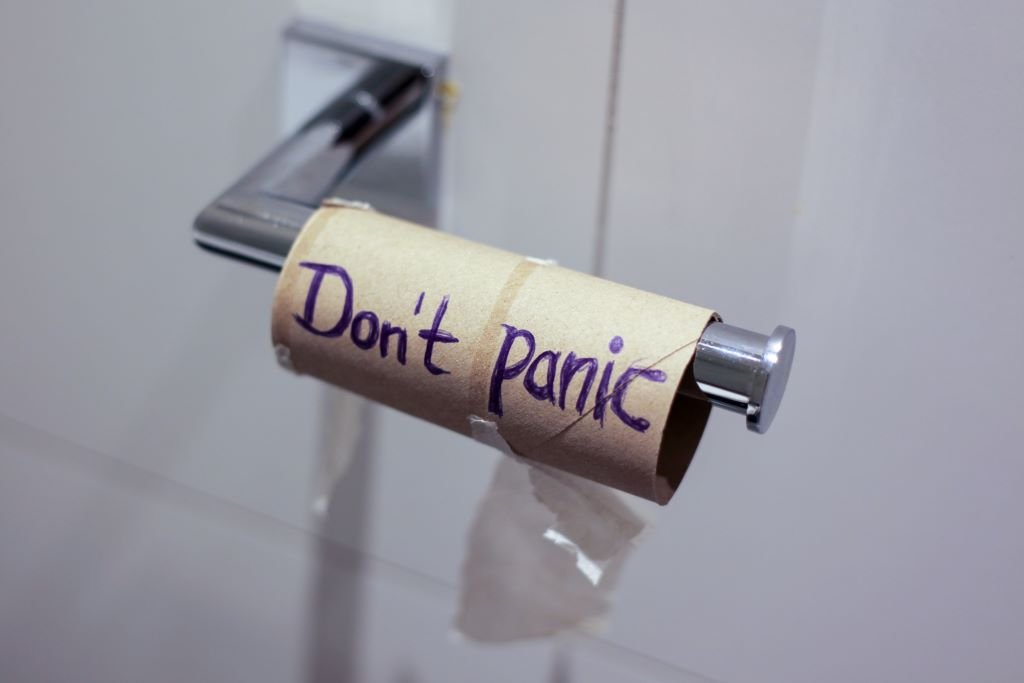How to stop catastrophizing and improve your life
Photo by Jasmin Sessler on Unsplash
Catastrophizing means expecting the worst when something bad happens. It could be a coping mechanism learned in childhood to help you regulate your emotions.
No one taught you that failure is inevitable on the road to success. When you made mistakes you may have experienced punishment or rejection. So, you strive to be perfect and chastise yourself when you're not.
Rather than a normal part of any growth journey, whether personal or business, you see failure as fatal. You assume that making one mistake at work, for example, means you'll lose your livelihood.
You spiral into a future where this one "failure" (which is actually a life lesson) dooms you for eternity. You will never get any clients, you will lose everything, and wind up homeless on the street.
If your brain has been wired since childhood to think this way, it may be difficult to change. Many self-help experts recommend replacing negative thoughts with positive, but this can feel exhausting.
Often these thoughts are automatic and outside our control. Monitoring your brain may not be a sustainable solution.
Due to the need to protect ourselves from danger, human brains have a negative bias anyway. So, catastrophizing comes from an adaptive feature that becomes maladaptive when left unchecked.
Solutions to catastrophizing
Developing a mindfulness practice can help stop spiraling, without feeling like the thought police. Mindfulness keeps you in the present moment without judgments, accepting whatever arises.
Catastrophizing involves a negative focus on future events. Therefore, consistent mindfulness will re-train your brain to focus on the present moment without the vigilance required to police your thoughts.
Feeling instead of avoiding your feelings will help curb your catastrophizing. If you allow yourself to experience disappointment if and when it comes, for example, you'll see it won't kill you.
Disappointment would have felt devastating if no one supported you or helped you manage it. So to mitigate that feeling you fear so much, you assume the worst possible outcome.
Catastrophizing prevents you from feeling blindsided by disappointment or having your hopes dashed. Understanding this underlying purpose for your negative thoughts will help stop the shame you feel around them.
You may instead thank that part of yourself for trying to protect you. This creates an integrity within you where you feel like you're on your own side instead at war with yourself.
From this place of wholeness, you can gently tell that part of you that you no longer need protection. You're an adult now and can take risks and learn from your mistakes without fear of doom.
The danger of self-isolation
Self-isolation, common among childhood trauma survivors, feeds into catastrophizing. Due to the shame you received in childhood over basic human emotions and imperfections, you avoid sharing your doubts and failures, dreams and desires.
When you deny yourself connection with others, you overestimate their success and underestimate your own. You assume everyone else enjoys unfettered achievement.
As a result, when you fail you go through the experience alone. Without anyone to talk to, you ruminate and invent scenarios in your mind that tell you failure is inevitable.
You never learn that failure provides necessary lessons because no one taught you that truth. If your parents failed to give you guidance or teach you essential life skills, these will continue to elude you.
Truth is, most people have been taught by parents or other mentors how to achieve success. Anyone who says they made it on their own, ignores the impact of positive others in their lives.
Catastrophizing as self-protection
Every successful person has failed multiple times. They don't let it mean anything about them but view setbacks as part of the process.
Since you tied love and acceptance to your ability to achieve perfection, you cannot separate the two. For you, failure makes you unlovable and unacceptable.
Instead of believing you failed one time and applying the lesson to the next attempt, you catastrophize. Your inner child tries to protect you this way.
It may be a tough love way to stop you from failing again. Or an attempt to prevent the uncertainty you fear.
When you were a child uncertainty felt deadly. Now, you avoid it at all costs to keep yourself safe and that's where catastrophizing comes in.
next steps
By now, you know this way of living only hurts you. Your inner child's good intentions of keeping you safe backfire in the adult world. It robs you of joy, intimacy, and income.
Reparenting yourself will help you heal the inner child so she can stop sabotaging you as she tries to protect you.
Learn more about this concept at my free masterclass, “The 4-Step Process for Healing Your Childhood Trauma” available on demand here.

